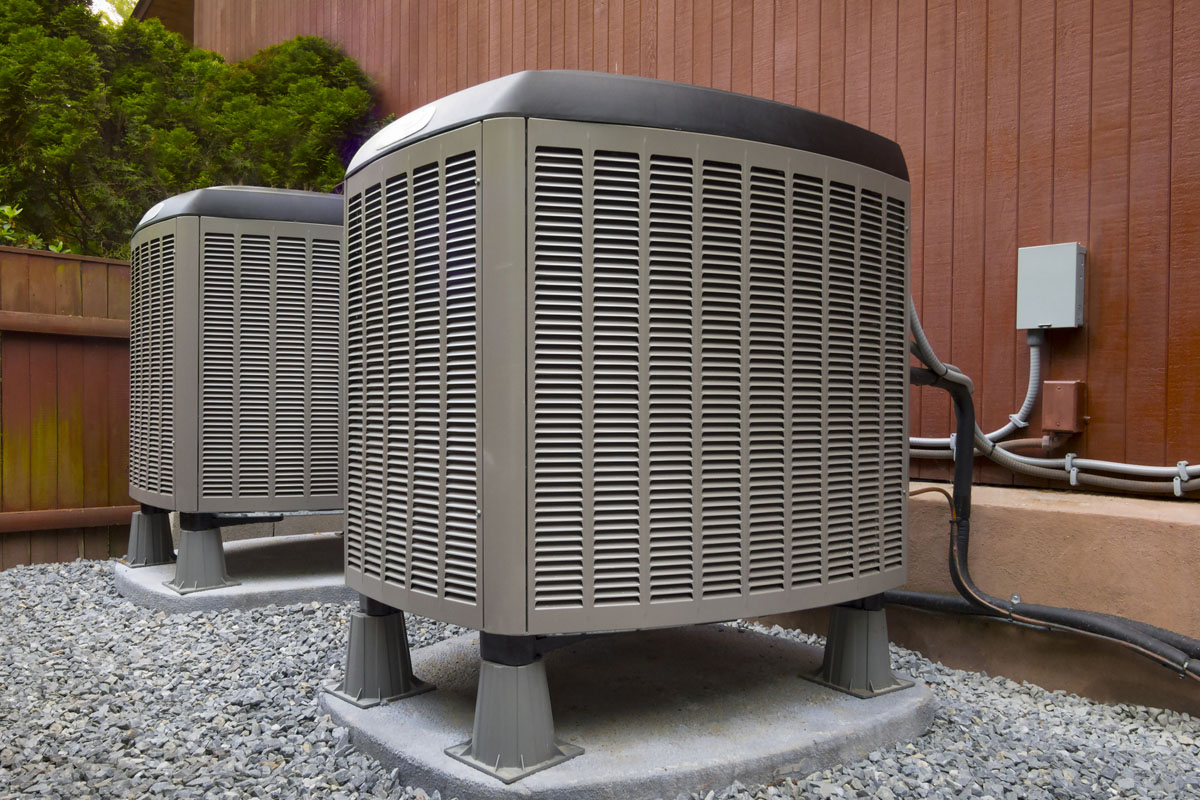

We may earn revenue from the products available on this page and participate in affiliate programs. Learn More ›
Whether it’s an air conditioner, furnace, air handler, or all three, replacing a home HVAC system is a major investment. This makes choosing the right brand for cooling and heating all the more crucial.
There are many reputable HVAC manufacturers to choose from, many of which have been around for 100 years or more. Selecting the right brand can be a challenge. This guide can help make that decision-making process a little easier, as we’ve reviewed some of the top brands on the market today. These are brands that are on the cutting edge of HVAC technology and have reputations for manufacturing efficient and durable air conditioners, furnaces, and heat pumps.
1. Trane
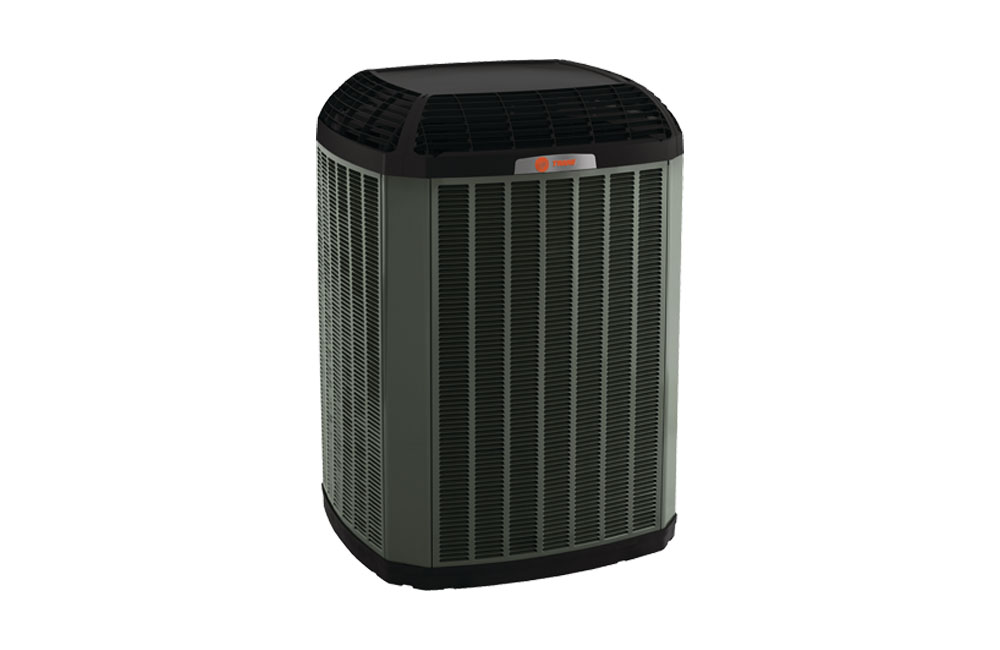
Price Range: $$ to $$$
Our Top Picks: Trane XV20i TruComfort Air Conditioner, Trane 96 Modulating Variable-Speed Gas Furnace, and Trane Deluxe Ductless Heat Pump (contact Trane for pricing).
In its more than 135 years of existence, Ireland-based Trane has developed a reputation for building some of the most reliable and efficient HVAC systems. The company consistently earns some of the highest dependability ratings of any brand in the industry. The biggest selling point for Trane is that its chillers are responsible for keeping the Chunnel Tunnel (the underground train route between the UK and France) at a bearable temperature. This is the embodiment of the company’s slogan that it’s “hard to stop a Trane.”
Trane also is one of the only HVAC companies that does not sell its units in product lines. Instead, it presents products with product numbers, which can be easier for contractors but harder for consumers to follow. What’s hidden in those product numbers is that Trane AC units (like the XV20i TruComfort model) have higher SEER (Seasonal Energy Efficiency Ratio) ratings than those of most manufacturers. Trane also is one of the most expensive brands.
Shop Trane HVAC systems at Trane.
2. Rheem
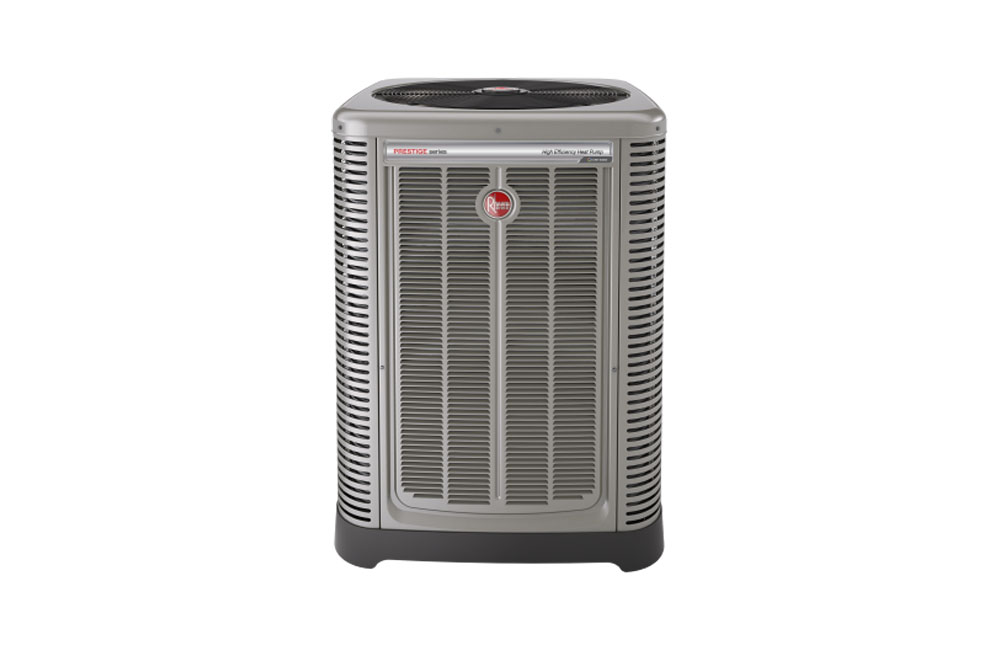
Price Range: $$ to $$$
Our Top Picks: Rheem Prestige Series RA20 Air Conditioner, Rheem Endeavor Line Gas Furnace, and Rheem Mini-Split Heat Pump & Air Handler (contact Rheem for pricing).
Rheem, which got its start nearly 100 years ago, makes its home in Atlanta, Georgia, and is one of the largest suppliers of water heaters, boilers, and HVAC systems. Though Rheem may not have quite the reputation for durability as its rival Trane, the company is still among the top when it comes to producing reliable combination heat pump and air-conditioning units.
Where Rheem really shines is with energy efficiency, ranking at or near the top in that area. The EcoNet-enabled Prestige Air Conditioner is a fine example. The company produces some of the best AC compressors, which helps keep cooling costs low. Rheem HVAC units are notably more affordable than Trane’s, making it a good option for those who have smaller budgets.
Shop Rheem HVAC systems at Rheem.
3. Lennox
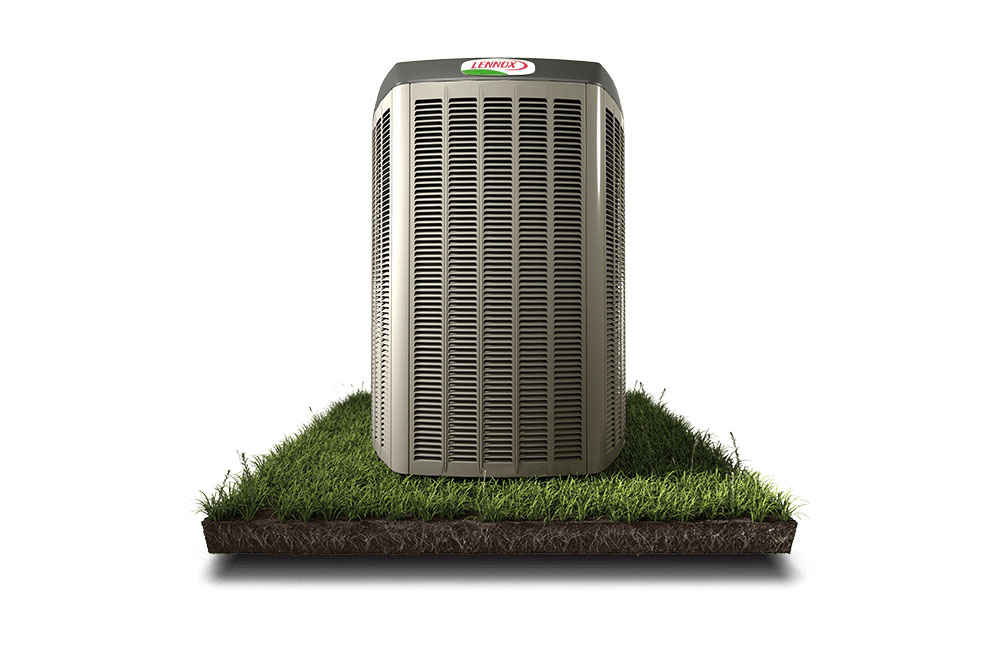
Price Range: $$ to $$$$
Our Top Picks: Lennox SL28XCV Air Conditioner, Lennox SL280V Gas Furnace, and Lennox MLA Mini-Split Heat Pump (contact Lennox for pricing).
One of the oldest HVAC brands in the country, Lennox was launched when founder Dave Lennox patented the first riveted steel furnace in 1895. The company added air conditioners in 1952. The Dallas-based company’s HVAC units boast some of the most advanced technology in the business. High-end Lennox Elite Series AC units will automatically adjust cooling based on readings from climate sensors built into the unit, and some have the ability to operate off of solar power with Lennox’s SunSource technology.
The Lennox SL280V is one example of the company’s gas furnaces that can automatically adjust motor speeds and flame size to operate as efficiently as possible, saving up to 33 percent on heating costs. Lennox HVAC systems also have a reputation for being among the quietest on the market.
Shop Lennox HVAC systems at Lennox.
4. York
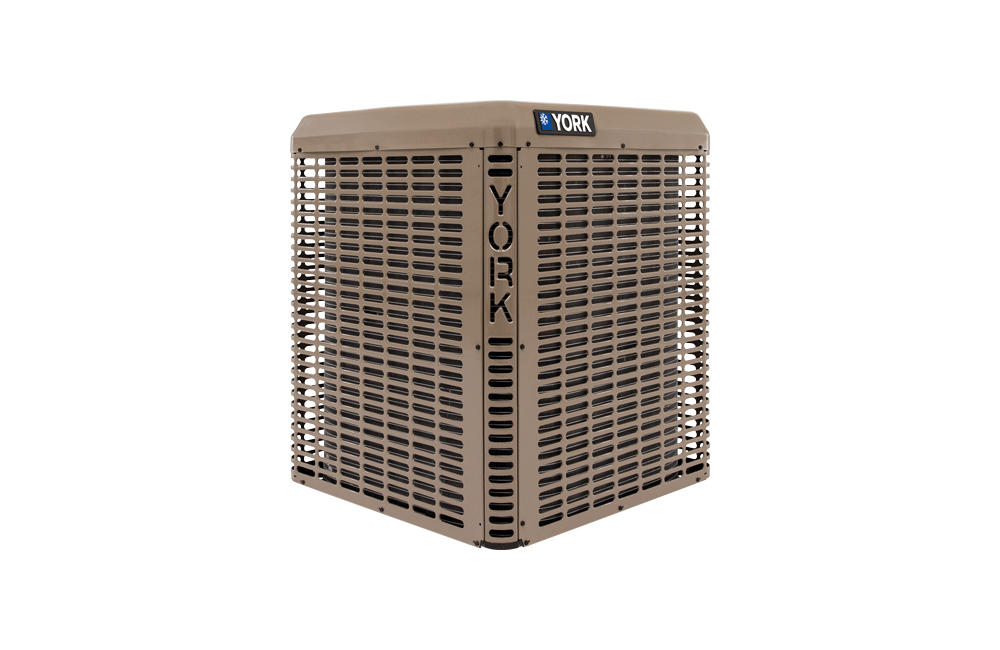
Price Range: $$ to $$$
Our Top Picks: York LX Series TM9Y Two-Stage Furnace, York YXT 19 SEER Two-Stage Air Conditioner, and York S Series Mini-Split Heat Pump (contact York for pricing).
The nearly 150-year-old York, based in York, Pennsylvania, started producing ice machines before becoming one of the world’s first air conditioning manufacturers. The company is credited with cooling the first air-conditioned building. It serves as the air conditioner of choice for several major landmarks, including the Sydney Opera House, the U.S. Capitol building, and the Empire State Building.
York offers three furnace product lines but is best known for its LX series, one of the more affordable Energy Star–rated furnaces on the market. The company’s high-end Affinity line of AC units is Energy Star certified, with SEER ratings of 18 to 20.
Shop York HVAC systems at York.
5. Ruud
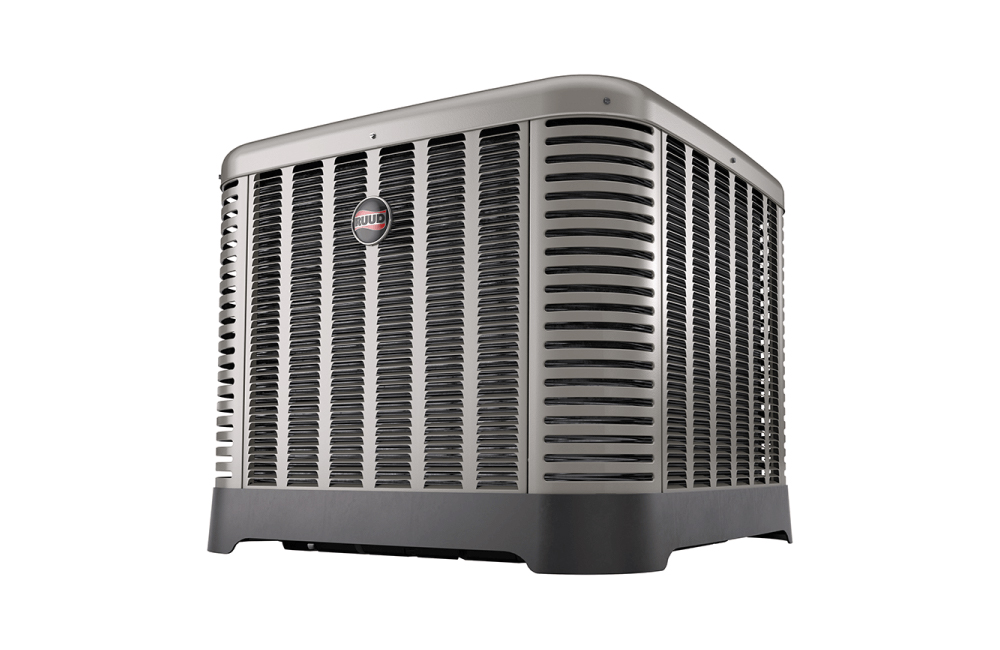
Price Range: $ to $$$
Our Top Picks: Ruud Achiever Series Single-Stage RA14 Air Conditioner, Rudd Endeavor Line Achiever Plus Series Gas Furnace, and Rudd Endeavor Line Choice Series Heat Pump (contact Ruud for pricing).
Ruud started manufacturing some of the first automatic water heaters back in the 1880s before adding HVAC systems in the 1950s. Today, the Atlanta-based company is a subsidiary of Rheem and offers heating and cooling systems through its several product lines. The company’s high-end Ultra air conditioners put out an impressive 20 SEER on the high end. Its Achiever series, meanwhile, presents a reliable option at the lower end of the price scale, producing some of the most affordable gas furnaces and air conditioners on the market.
As well as offering models like the Single-Stage RA14 for affordable air conditioning, Ruud also has a solid reputation for producing reliable systems with designs that make its internal parts more accessible. This means servicing them is easier, faster, and often less expensive.
Shop Ruud HVAC systems at Ruud.
6. Amana

Price Range: $$ to $$$$
Our Top Picks: Amana AMVM97 Gas Furnace, Amana AVXC20 Air Conditioner, and Amana ASZV9 Heat Pump (contact Amana for pricing).
Founded as Amana Refrigerator in 1934, Amana may be better known for its dishwashers and refrigerators. However, the company sold its line of appliances to Maytag more than 25 years ago, but it continues to produce central air conditioning units and heat pumps.
Amana’s HVAC SEER ratings aren’t as high as those of other brands, but the company does use impressive technology. A furnace’s heat exchange is an integral part that typically indicates the end of a furnace’s life when it cracks. Amana changed the industry when it developed models like the AMV97 with a stainless steel Million-Air heat exchanger that has a lifetime warranty. That advancement in technology set a new standard for durability in the industry and branded Amana as one of the more innovative HVAC manufacturers.
Shop Amana HVAC systems at Amana and Ferguson.
7. Heil
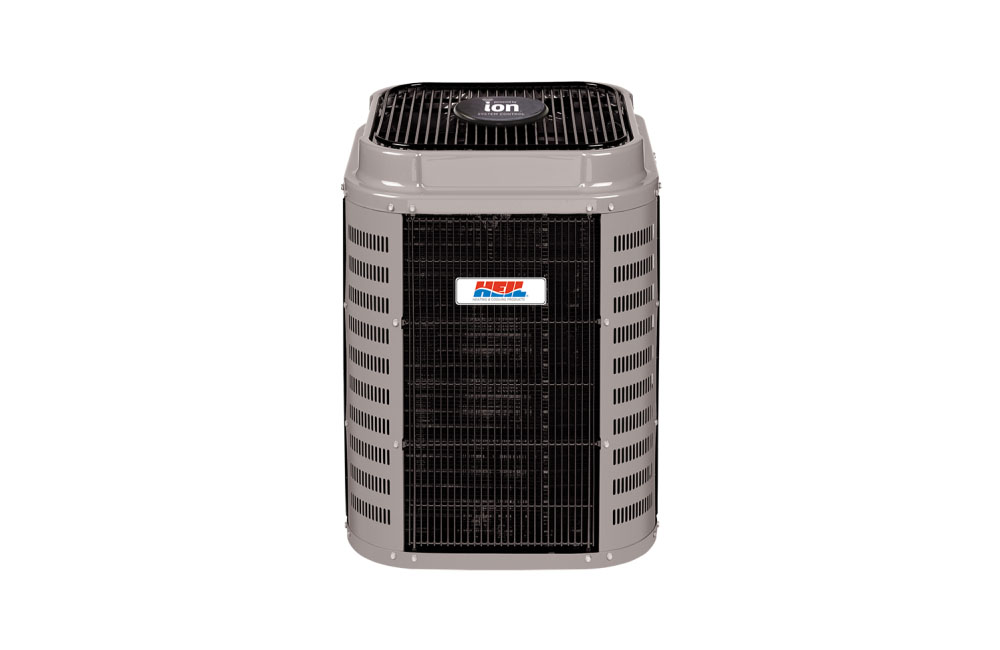
Price Range: $$ to $$$
Our Top Picks: Heil HVA9 Ion Variable-Speed Air Conditioner, Heil G97CMN Ion 98 Variable-Speed Furnace, and Heil DLCPRB Deluxe Heat Pump (contact Heil for pricing).
Heil was founded in Milwaukee in 1929 and was a supplier of HVAC products to Sears for several years. After a series of acquisitions through the years, Heil came under the ownership of HVAC giant Carrier. Today, Heil’s product lines include gas and oil furnaces, air conditioners, and heat pumps.
The company’s high-end Ion line of furnaces are known for excellent heat transfer. This makes them more efficient and has given the company a strong reputation for energy efficiency. The company also uses its energy-efficient Ion System Control to communicate back and forth between the thermostat and HVAC unit through Wi-Fi capability. This makes Heil one of the more technologically advanced names on the market.
Shop Heil HVAC systems at Heil.
8. Bryant
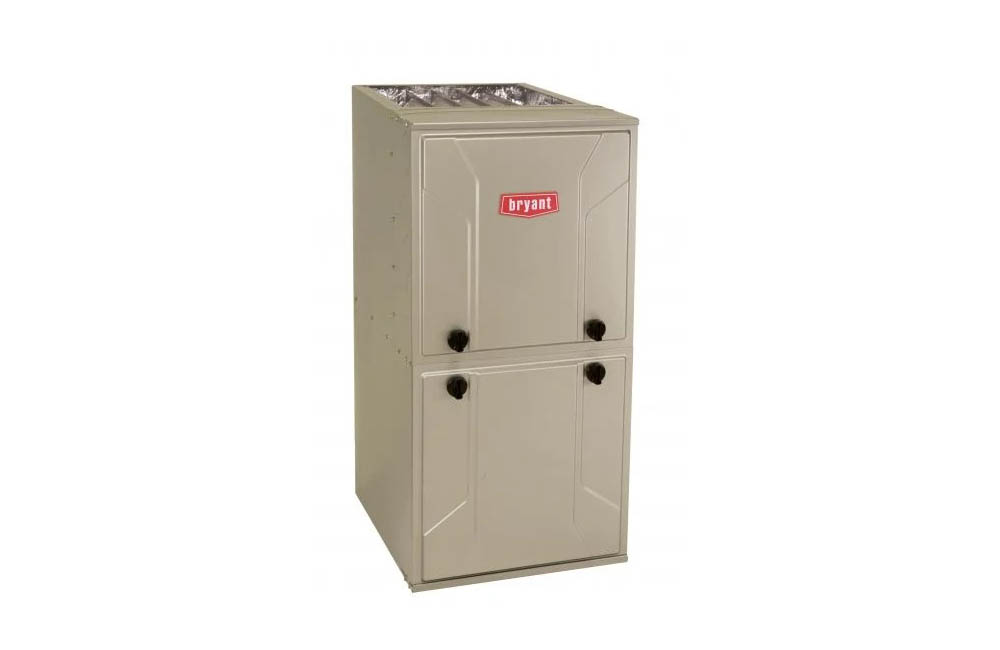
Price Range: $ to $$$
Our Top Picks: Bryant Evolution 98 Variable-Speed Modulating Gas Furnace, Bryant Evolution Extreme 26 Variable-Speed Air Conditioner, and Bryant Evolution Extreme Variable-Speed Heat Pump (contact Bryant for pricing).
Bryant, founded in 1904 in Cleveland, Ohio, was one of the biggest gas boiler companies in the early part of the 20th century before going through a series of acquisitions. Now based in Indianapolis, the company currently operates as a subsidiary of United Technologies Corporation (UTC); Bryant was acquired by the company in 1979.
Although the company manufactures three product lines of HVAC systems, Bryant is perhaps best known for its Evolution series of furnaces. These furnaces boast some of the industry’s highest ratings for the amount of heat they produce for each dollar of fuel consumed. The units are capable of reaching outputs of up to 20 SEER. Air conditioners such as the Evolution Extreme 26 are some of the quietest in the industry, thanks to the AeroQuiet System II noise- dampening feature.
Shop Bryant HVAC systems at Bryant.
9. Carrier
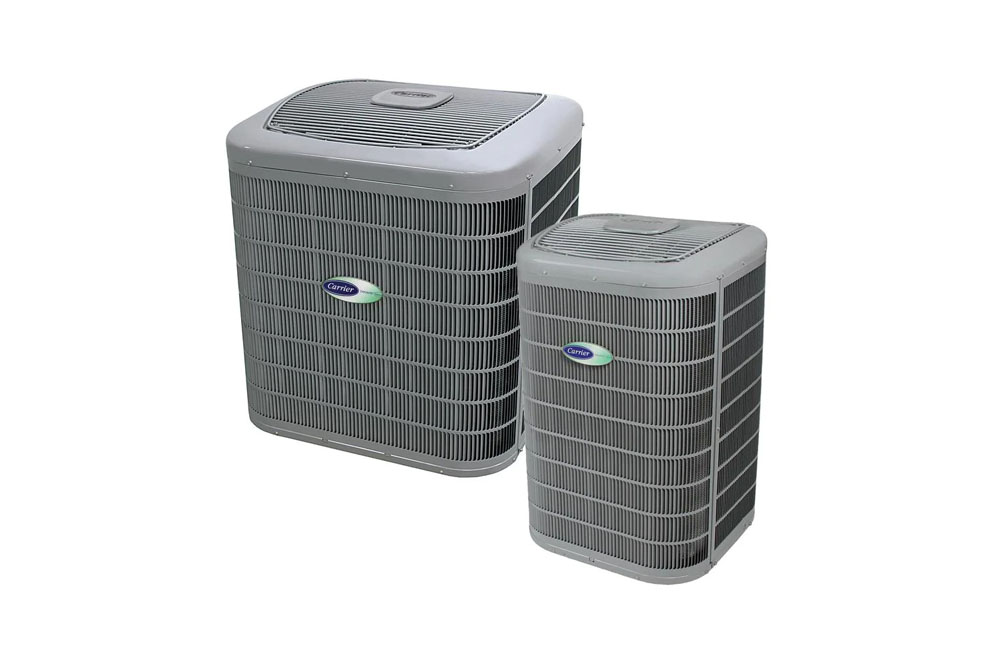
Price Range: $$ to $$$$
Our Top Picks: Carrier Infinity 21 Central Air Conditioner, Carrier Comfort 96 Gas Furnace, and Carrier Performance 2-Stage Heat Pump (contact Carrier for pricing).
One of the better-known brands in the HVAC industry, Carrier was founded by Willis Carrier, who invented the modern air conditioner in 1902. Carrier is one of several HVAC manufacturers owned by United Technologies Corporation (UTC), one of the leaders in air conditioners, gas furnaces, and heat pumps.
Carrier continues to be an innovator, evident in its two-stage air conditioners that offer high efficiency with a SEER rating of up to 21. While Carrier’s top-tier products are among the most expensive on the market, the company also offers lower-end options. Its efficient and affordable Comfort series, for example, encompasses air conditioners, gas furnaces, heat pumps, and ductless systems.
Shop Carrier HVAC systems at Carrier.
10. Goodman
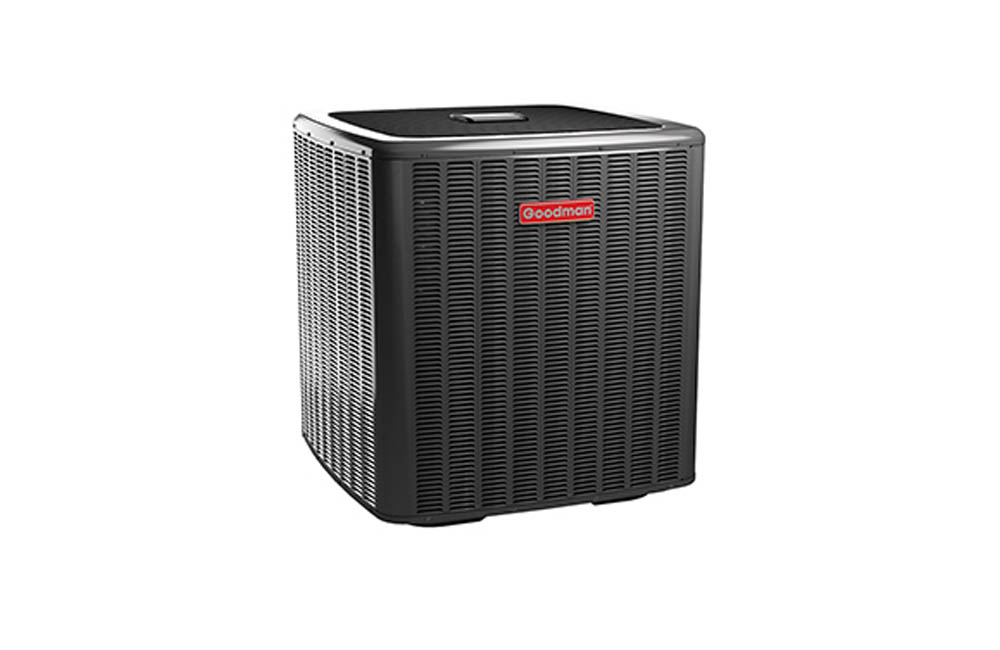
Price Range: $ to $$
Our Top Picks: Goodman GVXC20 Air Conditioner, Goodman GMVM97 Gas Furnace, and Goodman GSZS6 Side-Discharge Heat Pump (contact Goodman for pricing).
Although Goodman is nearly 50 years old, it’s actually one of the younger HVAC brands on the market. The company, which also owns Amana HVAC systems, puts out a large line of heating and cooling systems.
The company’s HVAC systems are known for their solid construction and innovations in durability. They include coil guards for protecting the unit from debris caused by lawn mowers and other potential hazards, and special filters keep dirt from entering the system. That quality construction also translates to furnaces such as the high-performance GMVM97. This model has a durable steel heat exchanger and a multi-speed blower that adds efficiency while keeping the unit’s noise level low.
Shop Goodman HVAC systems at Goodman.
11. American Standard
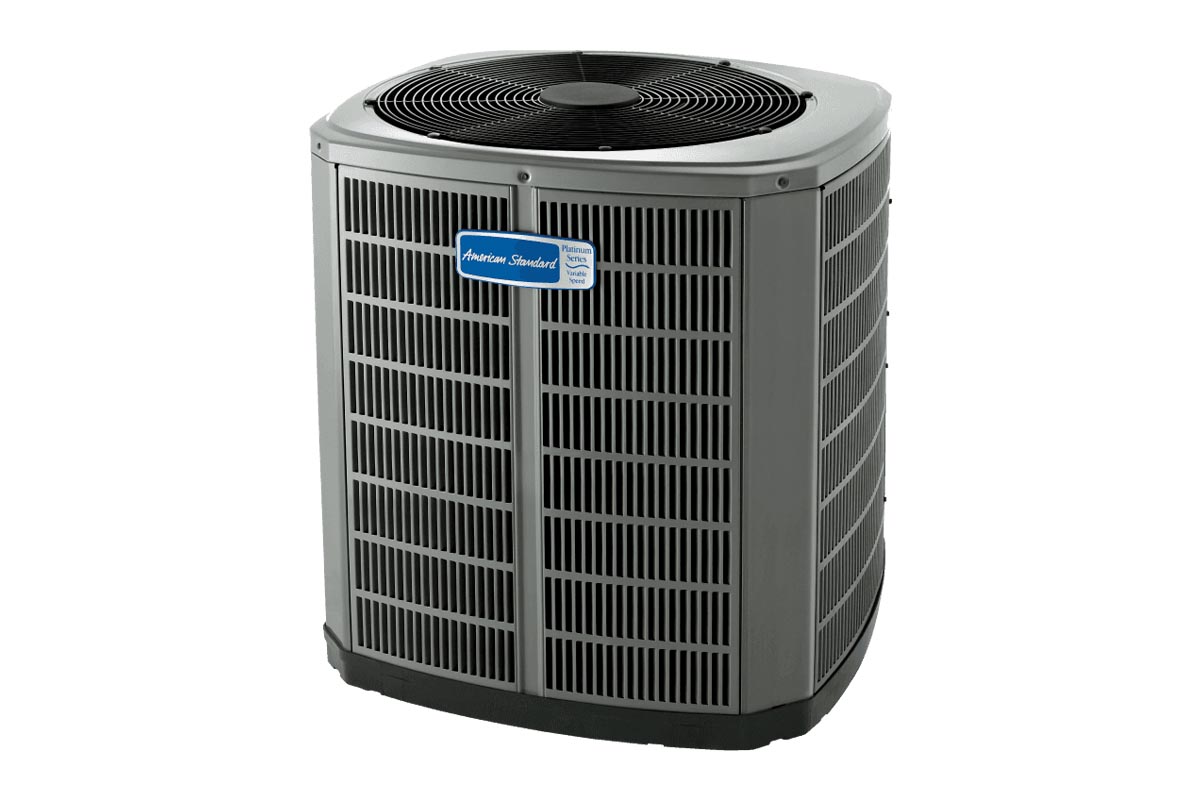
Price Range: $$ to $$$
Our Top Picks: American Standard AccuComfort Platinum 20 Air Conditioner, American Standard Gold S9X2 Gas Furnace, and American Standard Silver 14 Heat Pump (contact American Standard for pricing).
In 1929, a merger of the American Radiator Company and Standard Sanitary Manufacturing Company created American Standard (although the shortened name wasn’t actually adopted until 1967). The brand prides itself on high manufacturing quality, and to ensure durability, it carries out extensive testing in extreme conditions.
The reliability of American Standard HVAC devices has been recognized through several independent awards for homeowner satisfaction. The company’s commitment to customer service is backed by its network of 6,000 dealers. Most products come under one of three qualities: Platinum models like the AccuComfort Air Conditioner deliver optimal performance at a premium price, Gold models provide a good balance between performance and price, and Silver models are for the customer looking for maximum affordability.
Shop American Standard HVAC systems at American Standard.
12. Frigidaire
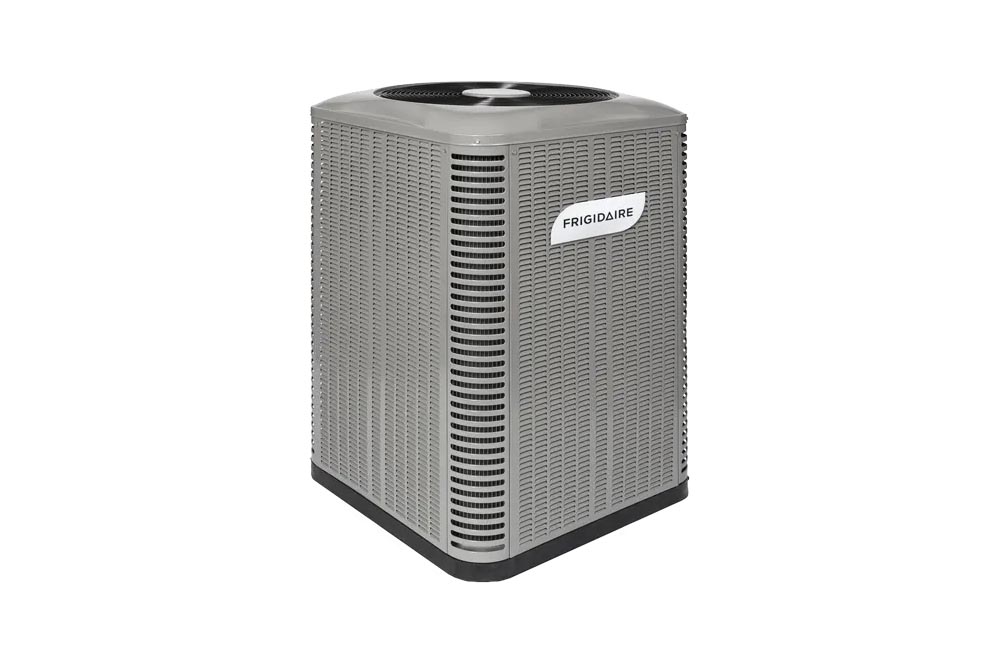
Price Range: $ to $$$
Our Top Picks: Frigidaire Brilliance Series Air Conditioners, Frigidaire Essential Series Gas Furnaces, and Frigidaire Brilliance Series Heat Pumps (contact Frigidaire for pricing).
Many people will recognize the Frigidaire brand for its range of kitchen appliances, but it also offers competitively priced air conditioners, furnaces and heat pumps. These are not manufactured by Frigidaire, but by industry specialist Nortek Global HVAC out of O’Fallon, Missouri. Nortek manufactures different devices for several brands but does not sell direct to customers.
Although the range isn’t as extensive as some, prices are very competitive. Frigidaire is particularly strong on the reliability of its HVAC units, with each product undergoing extensive testing. For example, every Essential Series Gas Furnace is checked 234 times before it leaves the factory. Other Frigidaire HVAC devices go through equally rigorous check processes to ensure reliability.
Shop Frigidaire HVAC systems at Frigidaire.
13. Samsung
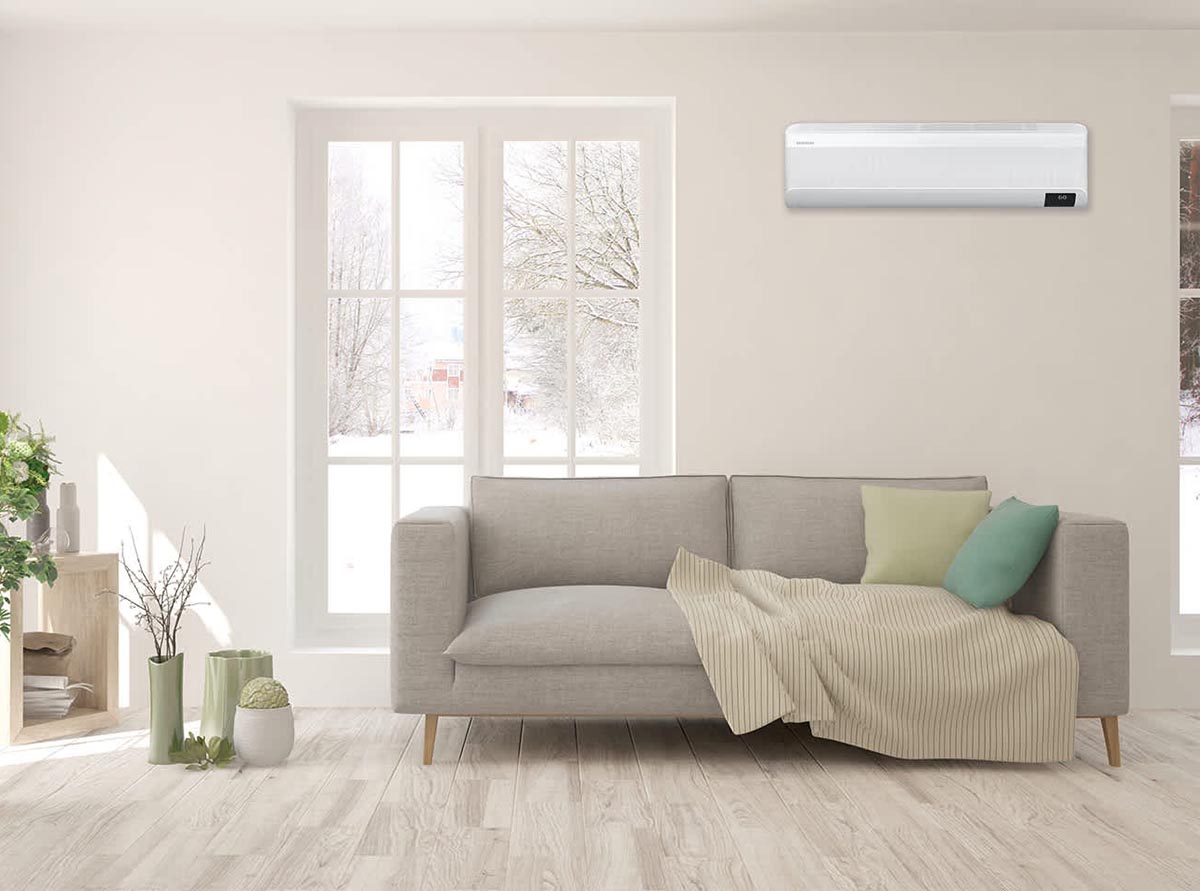
Price Range: $ to $$$
Our Top Picks: Samsung Hylex Heat Pump, Samsung Max Heat Mini-Split Condenser, and Samsung WindFree 3.0i Mini-Split Air Handler (contact Samsung for pricing).
Samsung is a South Korean manufacturer founded in 1938. The company has U.S. headquarters, and distribution is in Roanoke, Texas. This is another brand best known for consumer electronics and home appliances; however, Samsung also produces a wide range of residential and commercial HVAC systems.
Innovative design is a key feature of many of Samsung’s HVAC devices. For example, its mini-split air conditioners offer smartphone compatibility and voice control. Convenience is also a consideration. The Hylex heat pump is 50 percent smaller than traditional “cube” devices so it’s easier to find space for them. This makes it particularly appealing for those with zero-lot-line properties. However, homeowners in search of a furnace will need to look elsewhere, as Samsung does not make them.
Shop Samsung HVAC systems at Samsung.
How We Chose the Best HVAC Brands
Selecting the best HVAC brands for homes involved evaluating many key aspects of well-known brands and products. We searched for brands that offer highly regarded residential air conditioners and heating systems with hassle-free maintenance requirements and straightforward installation.
For brands to make this list, there must be easy access to local dealers and installers, and the company must provide detailed and easy-to-understand information about their products to make selecting the right unit uncomplicated. From air conditioner units to furnaces, any HVAC system can be a large investment, so we chose brands that deliver high-quality products with solid value-for-money lifespans.
